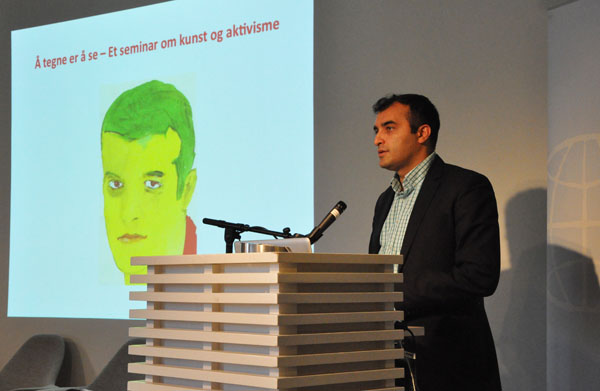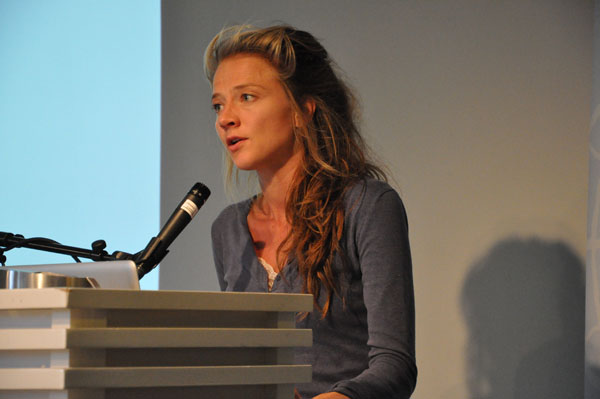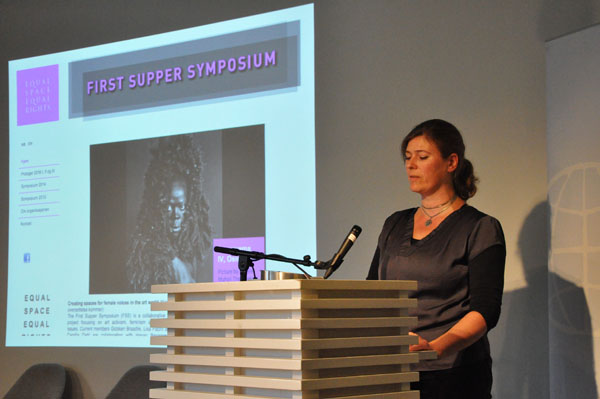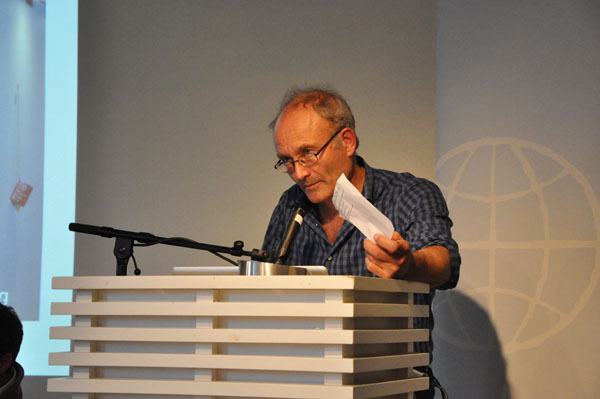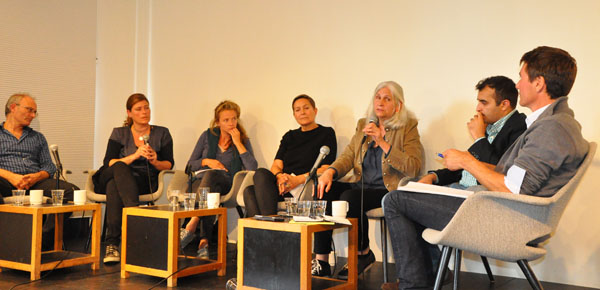This gives me hope that we can change the situation in the country, said human rights defender Rasul Jafarov at the seminar «To Draw is to See» at the house of Literature monday 19. September. The seminar was a joint event between the Oslo National Academy of the Arts (KHIO), Akershus Art Centre, and Norwegian Helsinki Committee (NHC), and was organised in conjunction with the exhibition «The Big Draw – Drawing for Freedom» which is displayed at Akershus Art Centre in the period 17. September- 16th of October.
– Art is a tool we can use to defend human rights, and it is important for public awareness. With the Art for democracy campaign we managed to create a coalition between human rights defenders, journalists, bloggers and artists. In Azerbaijan this proved to be succesful, and we managed to reach more people, Jafarov continued.
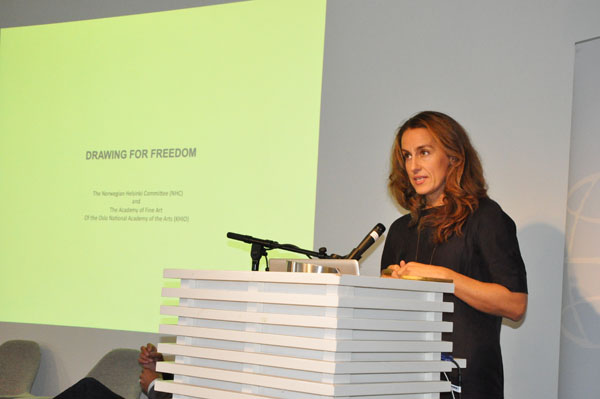
The initiator of Drawing for Freedom, artist, and former NHC employee, Anne Marit Austbø presented the background for the project Drawing for Freedom.
– Drawing for Freedom, is an attempt to communicate solidarity through drawing. I was inspired by the words of artists Siri Hustvedt who writes: «When I draw what I see it is as if I touch the thing I am looking at with my mind and it is as if my hand is caressing its outline», said Anne Marit Austbø in her presentation. – Another goal with the project is to make other people see, to promote change, to actually try to contribute to the release of the prisoners. This is the activist dimension of the project.
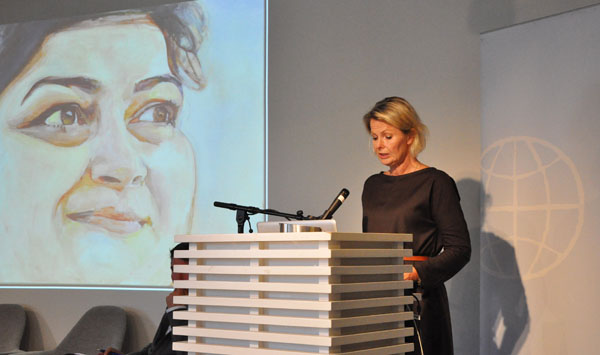
NHCs Senior Adviser on Azerbaijan Berit Lindeman presented the present situation for activists in Azerbaijan. – Since the oil and gas rich country in South Caucasus gained independence when the Soviet Union collapsed, the country, except for a brief period at the start, has been led by a regime that is corrupt, intolerant to criticism and massively violates of civil and political rights. The current president, Ilham Aliyev, took over power from his dying father in 2003 and changed the constitution in 2009, so he could be re-elected indefinitely. Elections are rigged. Media is almost totally under state control, civil society, like human rights organisations, is broken by draconic laws and unbearable harassment, said Berit Lindeman, and continued: – Imprisonment and humiliation are not the only method of keeping opposition down. You can lose your job, place at University or be denied the right to travel abroad. The same could happen to your father or brother.
Presentations were also held by Kaja Scherven Mollerin, who gave an introduction into Susan Sontag and her life in the intersection between art and politics. Artists Lisa Pacini and Camilla Dahl presented the goals and motivations behind their feminist art project FIRST SUPPER SYMPOSIUM, and artist Pierre Lionel Matteshared his experiences from his art project Final Status Map.
